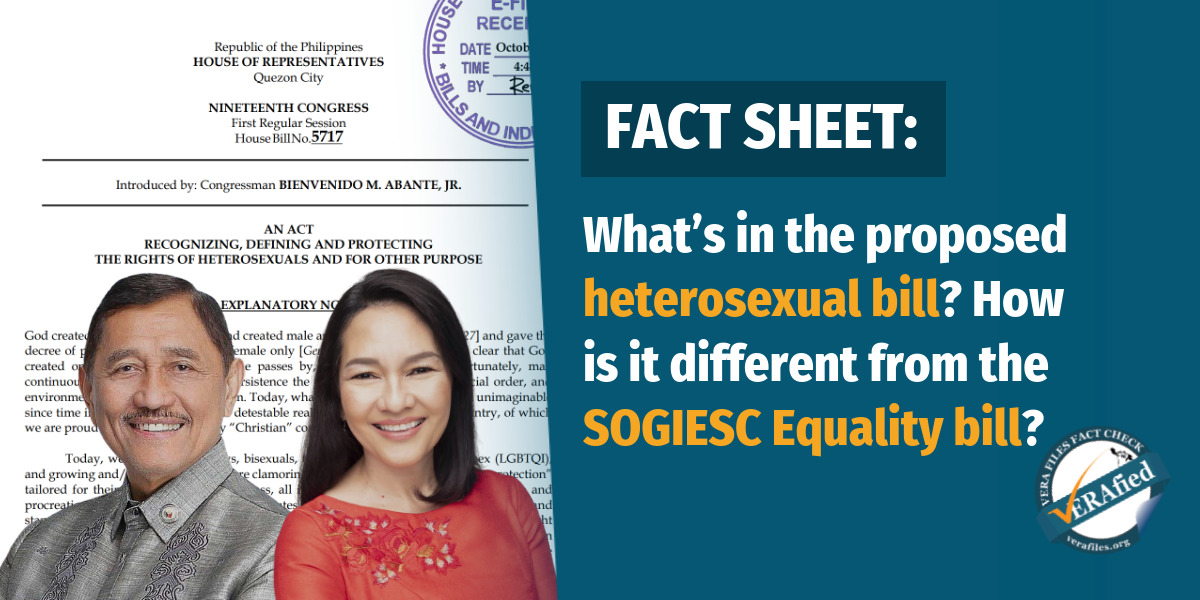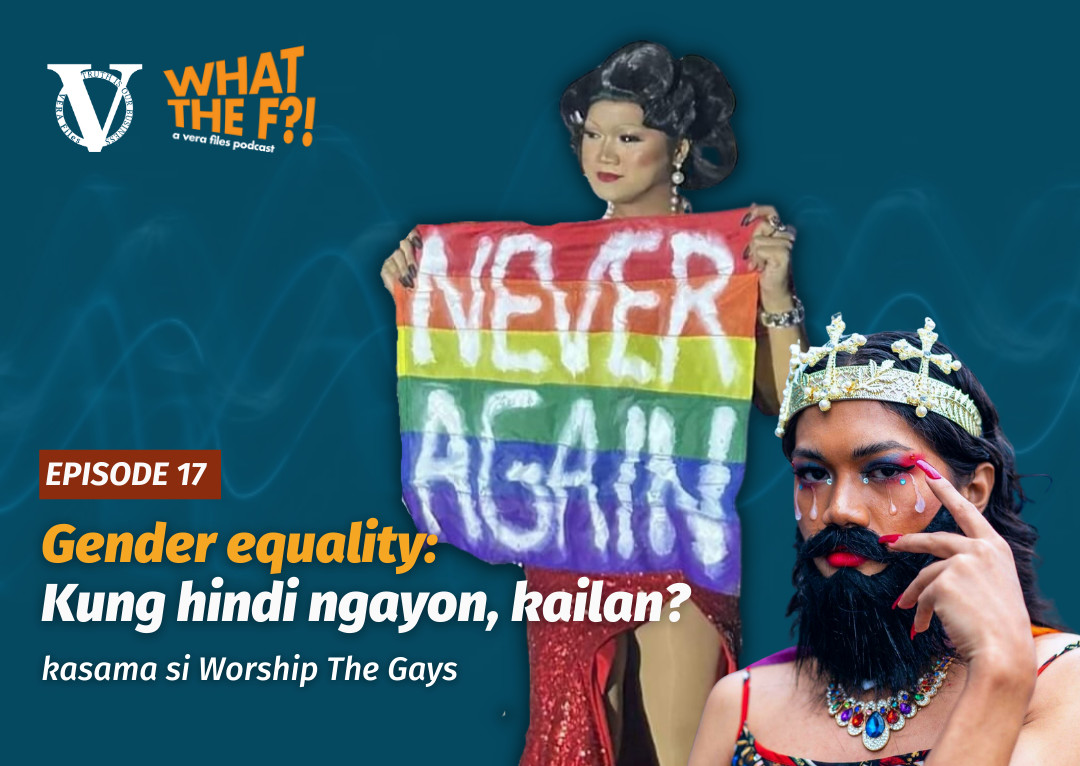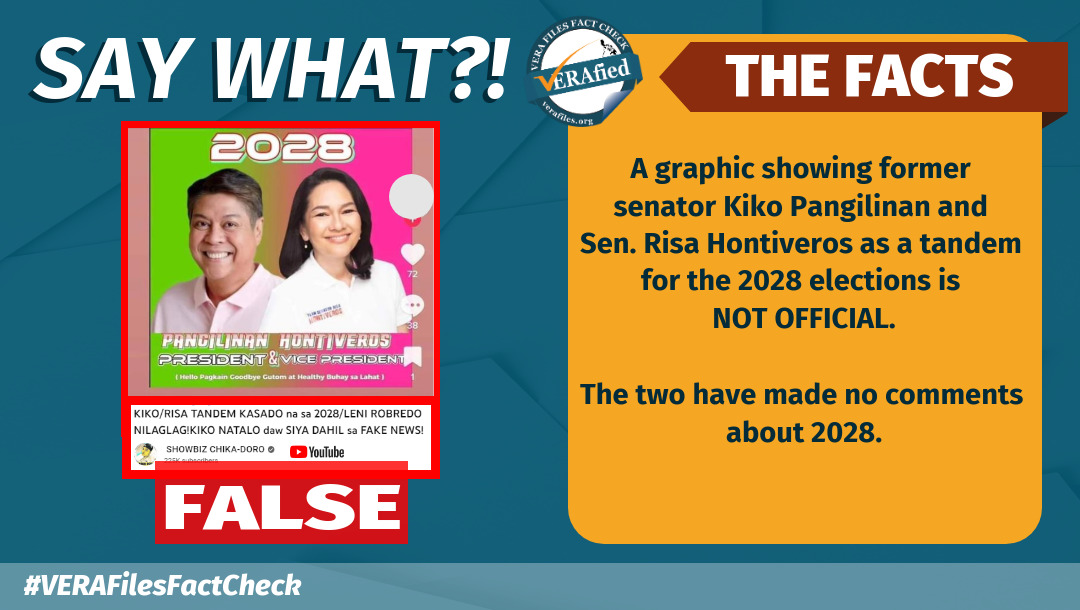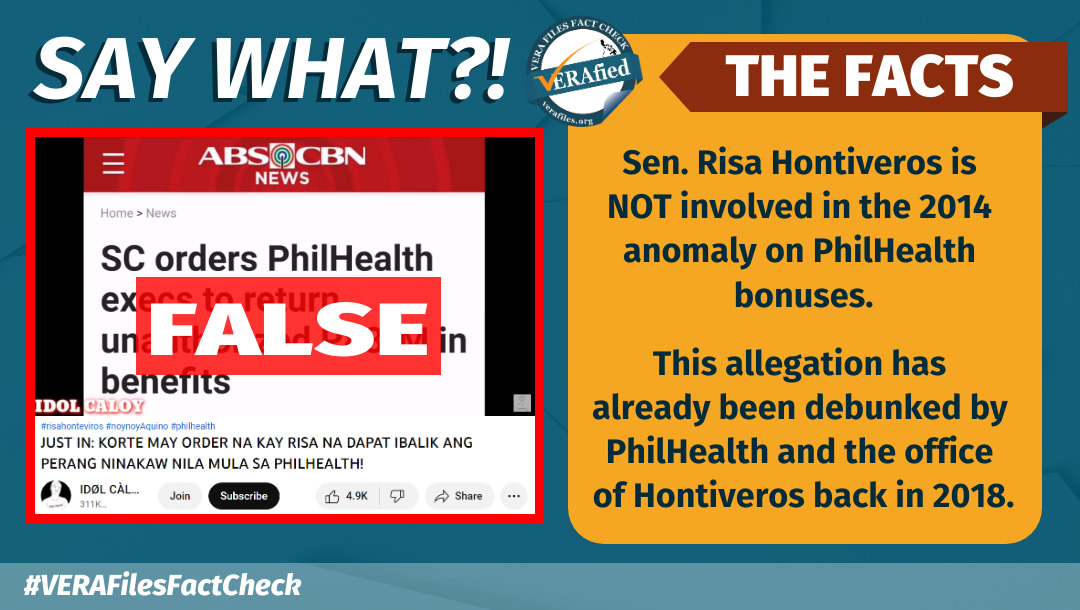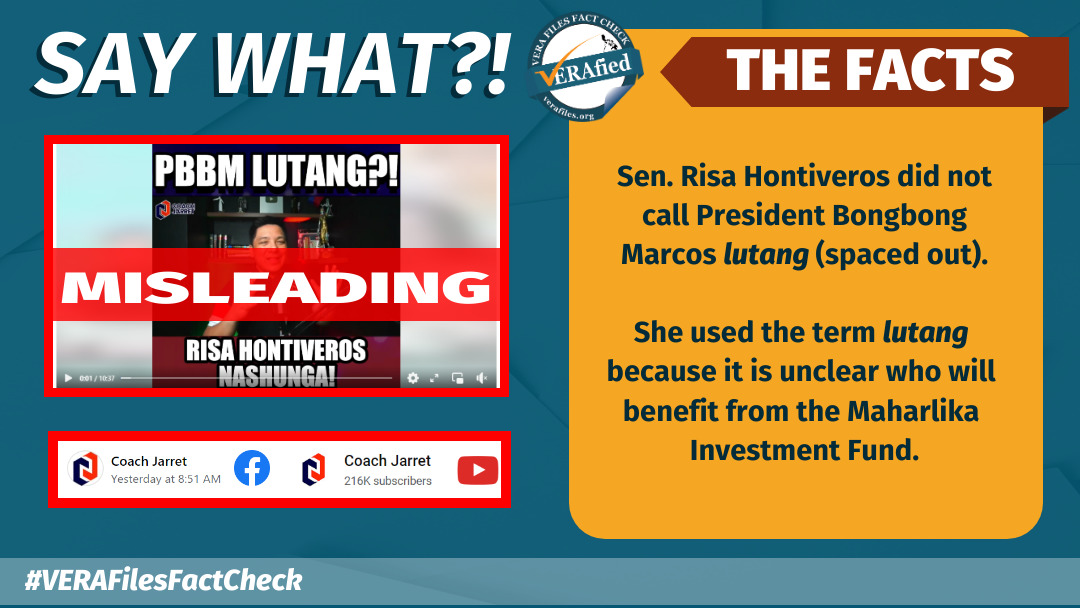Manila Rep. Bienvenido Abante Jr. filed on Nov. 9 a bill that seeks to protect heterosexual views and practices.
The measure drew flak from various groups and personalities advocating the rights of the LGBTQIA+ community, dubbing it a “joke of a law” as they renewed a call for the enactment of the SOGIESC Equality Bill, which has been stuck in Congress for two decades.
What’s in the proposed heterosexual bill and how is it different from the SOGIESC Equality bill? Here is what you need to know:
1. What does House Bill 5717 contain?
The proposed Heterosexual Act of 2022 or House Bill 5717 seeks to recognize, define and protect the rights of heterosexuals to express their views on homosexuality and practice their religious beliefs.
“The bill is intended to protect heterosexuals in specific areas of human endeavor which, when practiced or exercised, may be considered as violative of the ‘desired legislated rights’ of the LGBTQI,” Abante said in response to VERA Files Fact Check’s inquiry. “If the LGBTQI is ‘given’ and protected of specific or particularized ‘rights’, heterosexuals must also be protected of their ‘rights’.”
Under the bill, the following rights must be granted and protected:
- To adhere to, practice, proclaim, promote, propagate, defend and protect their religion and religious beliefs, convictions and standards without interference and/or abridgment;
- To practice and enjoy their religious profession and worship without interference or abridgment with the right to exclude therefrom others of different beliefs or faith;
- To freely express and communicate with others, privately or publicly, verbally or in writing or through print or broadcast media or through social media platforms that now exist or that may hereafter be developed;
- To freely express, exercise, and impose, in running or operating their churches, businesses, schools or workplaces; and,
- To freely express their views, verbally or in writing, privately or publicly, in print or broadcast media, or in social media platforms that now exist or may hereafter be developed about homosexuality, bisexuality, and on transgenders and queers according to their religious beliefs and practices and to biblical principles and standards.
The proposed legislation prohibits and penalizes any acts and attempts of “preventing, prohibiting, abridging, or otherwise interfering with the free exercise and enjoyment by heterosexuals of any of their rights” while barring heterosexuals from threatening “homosexuals” for exercising their rights.
“It does not mean that we are against or we will discriminate against others who don’t believe in it [religion]. No. In my bill, there is even a provision that heterosexuals should not engage in any discriminatory act. That is very clear in my bill,” Abante explained.
If any of the provisions are violated, the bill proposes penalties of imprisonment of five to seven years and fines ranging from P100,000 to P200,000.
2. How is HB 5717 different from the SOGIESC Equality bill?
In an email to VERA Files, Sen. Risa Hontiveros explained that heterosexuality is a “kind of SOGIE” and heterosexuals may also benefit from the SOGIESC Equality Bill which she is sponsoring.
“This is not a special law for the LGBTQIA+ community, but a policy that asserts that our laws must explicitly include every person. Equality is not possible if it does not include everyone,” said Hontiveros, who chairs the Senate Committee on Women, Children, Family Relations and Gender Equality.
Last Dec. 6, the committee approved the SOGIESC bill which, in contrast to the heterosexual bill filed in the House of Representatives, seeks to penalize discrimination against persons based on their sexual orientation, gender identity and expression, and sex characteristics.
Prohibited discriminatory practices include refusing admission to or expelling a person from any educational or training institution, imposing disciplinary sanctions harsher than customary that infringe on the rights of students, and refusing or revoking the accreditation of organizations, groups, political parties, or institutions, among others on the basis of SOGIESC.
Violators will be fined P100,000 to P250,000 or face imprisonment of one to six years.
Those who deny a person access to health services on the basis of SOGIESC will likewise be fined P100,000 to P300,000, or jailed for six months to two years and four months.
“Isa sa pinakamahalagang ginagawa ng SOGIESC bill ay pagsigurado na ang bawat Pilipino, kahit anuman ang kasarian, ay makakatanggap ng karapatang serbisyong-medikal kapag kinakailangan. Nakapanlulumo ang mga kwento ng mga miyembro ng LGBTQIA na pinagkakaitan ng medical services dahil lang sa kanilang kasarian. This is flat out discrimination,” Hontiveros said in a statement.
(One of the most important things that the SOGIESC bill can do is ensure that every Filipino, regardless of gender, will receive appropriate medical service when needed. It is appalling to hear stories from LGBTQIA members who are denied medical services just because of their gender. This is flat out discrimination.)
3. Why does it matter?
Abante, a Bible Baptist pastor, said he filed HB 5717 to guarantee the freedom to exercise one’s religious beliefs.
“The confidence I have is not in saying that this bill will become a law. My confidence is because we’re able to express ourselves, express our convictions, express our desires, and express our ideologies,” he said. “This might not pass into law. That’s fine with us. But it’s proper for us to be able to express what we believe in without any rancor or without any negative insinuation to anyone.”
For Hontiveros, SOGIESC Equality protects everyone from discrimination and is intertwined with the struggle for women’s rights.
“Women were abused and prevented from engaging in society on multiple levels because of SOGIE-based discrimination. Dati hinaharang ang mga babae sa pagboboto o sa pagtatakbo sa mga eleksyon (Before, women were prohibited from voting or running in elections). We want to liberate people from backward prejudices like that,” she said.
The senator lamented that her bill has been misunderstood as a renunciation of religious beliefs.
“As Catholics, we are taught to love our neighbors as we love ourselves. The bill is very much in line with that teaching because it is about protecting all Filipinos from violence. Our laws should leave no space for hatred; yet there is a gap in our laws that is used to justify unfounded hostility, and it needs to be filled,” she explained.
“There is no justice without equality. Walang mawawala sa kahit sinuman sa batas na ito (No one will lose out with this bill),” the senator stressed.
Have you seen any dubious claims, photos, memes, or online posts that you want us to verify? Fill out this reader request form.
Sources
House of Representatives, House Bill No. 5717, accessed Nov. 16, 2022
Reyna Valmores Official Twitter Account, Abante’s ‘Heterosexual Act’ is…, Nov. 9, 2022
Senate of the Philippines, Sponsorship Speech of Senator Risa Hontiveros on Committee Report No. 148, Dec. 16, 2020
Rep. Bienvenido Abante Jr., Personal Communication, Dec. 1, 2022
Sen. Risa Hontiveros, Personal Communication, Dec. 1, 2022
Senate of the Philippines, Senate Bill No. 1600, accessed Nov. 16, 2022
Senate of the Philippines, Hontiveros files SOGIESC Equality Bill Committee Report, Dec. 6, 2022
(Guided by the code of principles of the International Fact-Checking Network at Poynter, VERA Files tracks the false claims, flip-flops, misleading statements of public officials and figures, and debunks them with factual evidence. Find out more about this initiative and our methodology.)
